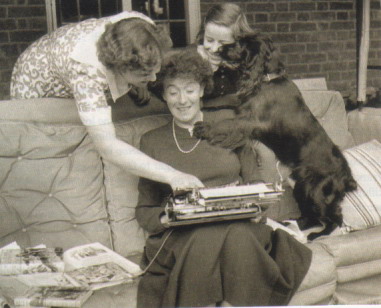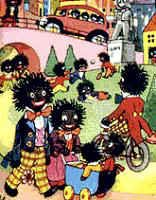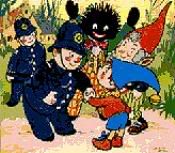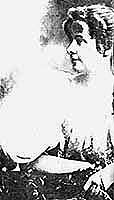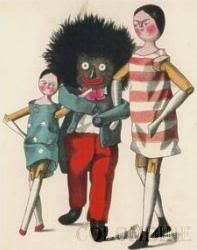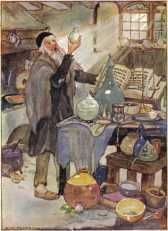
 Caption: Picture of Michelle de Kretser is from Barnes & Noble.
Caption: Picture of Michelle de Kretser is from Barnes & Noble.
by Suzan AbramsMaybe it was because I had resided in Melbourne, Australia, from 1999 to 2003 and indulged in a fair amount of inter-state travel. Today, memories of the bush or any slight mention of Australia's unique botanical fancy still commands the enduring power to draw on a cold gray memory accentuating the faraway continent's distinct prickly heat, punishing February sun, crunching sounds shaped from mummified leave corpses that may attune themselves to the rhythm of cracker-munching and gravelling sand on snake-winding tracks that glint like leftover diamonds in sawdust.
Even grass had the power to sting, a branch to scratch the pale smooth arm, twigs that masqueraded as pincers for a mild pinch and flies that ringed the scalp if you happened to thread on West Australian country in Perth or thereabouts.
I was roused from these extraordinarily affectionate scenes with their vague familiarity first, byPeter Carey's newest novel
His Illegal Self and now Michelle de Kretser's
The Lost Dog.
The simple title may have yet stashed away a dense mystery for the unsuspecting reader.
Tom, an Indian, emigrates to Australia as a child in the same way that the Sri Lankan novelist, de Kretser herself, came to Melbourne from Colombo at 14. Tom unknowingly aligns himself to an artist Nelly Zhang who is scarred from a scandalous past knitted by sudden untoward circumstances, rather than wilfulness. Nelly an ambitious painter has a son, Rory who is very much a minor player in the script. He is talked about rather than providing much lively action to the plot. It is her group of Melbourne friends who soon form Tom's necessary acquaintances with their secrets and careful attempts at camaraderie on a mismatched arts scene.
Tom falls in love with Nelly but his feelings are too painful if not a little scattered, for a smooth definition. Although, she stays a warm friend, the artist bitten by distrust and betrayal in the past remains the cold fish. There is a possibility that her hurts may stay eternal. The story opens with Tom at Nelly's holiday retreat in the bush where he has deliberately holed himself up for four days to complete his passion of writing a book; in this case, cleaning up his non-fictional manuscript on Henry Miller; a job to which he proceeds industriously.
In the interim, Tom loses his beloved pet dog which forms the theme as a lingering thread from the book's start to finish. It is while Tom desperately enlists the help of friends and neighbours to look for his dog while flitting from the city and back to the bush with a childlike anxiety, that his life flashes before him..of his childhood in India complete with a stern grandfather, slightly feather-brained but beautiful young mother and indulgent father. Then there were the numerous chaotic scenes, cluttered and colourful which he faithfully carries with him through the years as a child would hoard his favourite toys.
It was on Tom's grandfather's death and with no private accomodation left, that the small family had moved to Australia. Plus, it was the sixties when anglo-indian families armed with a new bravado, were already emigrating worldwide to make their fortunes. Tom's father, Arthur dies not long after but the ghostly melancholy spills upon the whole plot like a gentle nimbus cloud...dark and foreboding but lacking in courage to create tears. Tom's father appears like the gentle unseeing hand throughout the plot.
In present day Australia, Tom is left with a broken marriage, an ailing 82-year old senile mother, Iris, a grouchy aunt, Audrey, and his own survival guide to cope with his mother's major tantrums when she refuses to go into a home. He indulges his parent as best he can but stays dangerously on the verge of losing all control.
The whole plot is mishmashed together by the above where de Kretser demonstrates her complete mastery at exposition scenes by proceeding to mould and string events in her gentle precise way, that makes her voice soft and abating as it is powerful and full of resonance.
de Kretser is done with the subject of conjunction in grammar; words like
and are bravely replaced with commas.
Such poetic drama lends an ethereal quality to the entire story as de Kretser puppets her main character Tom to playact the sensitive caregiver while the artist strings along as terribly pained and the rest of the cast holds up as loving and giving if not somewhat apprehensive about the appearance of Tom in general.
Not always of course. There are jarring episodes even as Tom's mother Iris, is purported to be selfish, dreamy and superficial although unintentionally so and the aunt Audrey sketched as grouchy, dull and dogmatic. Still, in the face of irritation and resentment that brew amongst the secretive arty crowd, no one is ever rude or prone to raising their voices.
The characters are well-mannered, not once inclined to cussing or swearing and it is the effortless way that de Kretser leaves lines incomplete, words unsaid or forces one to shrug his shoulders or turn away in mid-sentence, that makes all the difference to tone, hype and drama. Yet kindness underscores every action and subsequent reaction.
de Kretser is adept at introspection and reflection without any signs of mawkishness or brutal realization. Being treated to numerous flashbacks which she manages to control with perfect timing and pace, the reader is left to visualize doors being continuously opened and shut with characters from the present and past constantly leaving or entering a room. The slight melodrama that expounds itself from such episodes may even make the reader feel Christmassy and cheery. It is after all, a conciliatory and homey crowd
Overall, the story trickles into the mind like the slow drip of water, melting liquorice or a prism intent on changing its colours even without light. A reader is forced to spy beauty in the face of tragedy. de Kretser also ingeniously turns ordinary detail into the romantic. Picture mini stories hidden inside assorted furnishings, window displays or the popular tiny objects that make a Camberwell market on Saturdays tick.
Not all the characters are well-developed as they may have been. A few in the arty crowd appear stereotyped and predictable even as Melbourne's cultural melting pot is wonderfully emphasized with names like Zhang, Osman, Pillai and so on. Also, the ending may appear more than a little vague. The novelist runs a risk of leaving the field open for a paradox...did this really happen for instance or it might have or may not have been... Be prepared for riddles.
This reader can't help thinking that the holiday retreat in the bush would have whipped up the better title since so much more surrounded its furnisings, ornaments and environment as opposed to the case of the missing dog.
Still, such questions are bound to sit well on a reader except for the hurried or impatient.
Michelle de Kretser has written a splendid philosophical novel on the search for the self.
 by Suzan Abrams
by Suzan Abrams













